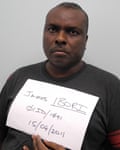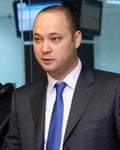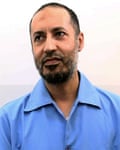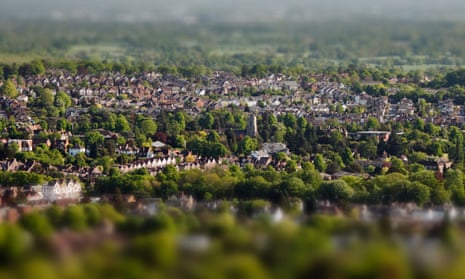Stand outside a north London private school when the bell rings at the end of the day and it soon becomes apparent how much some parts of the capital have changed in only a few decades.
Scything through the chill of a January afternoon comes the chatter of excited children. But these children are not speaking English or French or German. They talk in languages that come from far further afield.
“Thirty years ago, your average private school was solidly middle class,” said Robert Barrington, executive director of the UK chapter of Transparency International, an anti-corruption organisation. “Now a high percentage, 50% or more, will be children from overseas, countries like China and Nigeria.”
A similar picture emerges a few miles south of the leafy streets of Hampstead and Highgate down in Harley Street. The waiting rooms of the UK’s leading fertility clinics, orthodontists and cosmetic enhancement consultancies play host to wealthy families from the Middle East and the former Soviet bloc. From private schools to private healthcare, from Mercedes dealerships to Michelin-starred restaurants, the capital has benefited from a massive influx of foreign money.
A Deutsche Bank analysis in 2015 of the UK’s balance of payments data suggested that since the mid-1970s much of this money has come from one country in particular. The bank’s report noted: “There is strong evidence that a good chunk of the UK’s £133bn of hidden capital inflows is related to Russia.”
It appears more than a coincidence that much of the money has washed up following a concerted effort aimed at enticing the super wealthy to live in the UK. Eight years ago, in return for investing £2m, foreign investors were offered a “golden visa” allowing them to live in the UK. After five years they qualified for permanent residency.
Analysis by Transparency International shows that, out of the 3,048 visas granted since the scheme began in 2008, 60% were awarded to Chinese and Russian nationals.
Amid widespread disquiet that the wealthy were being allowed to buy their way into the country, the programme was quietly scrapped. But the lucky millionaires and billionaires who bought their way into the UK remain, their wealth and web of influence growing.
At its most visible level, the effects of this massive cash injection from abroad can be seen in the capital’s booming property market. Prices in super prime parts of central London have soared due to the billions of pounds of investment pouring in from Hong Kong, Qatar and Russia.
This has transformed the complexion of some of London’s most desirable areas. Few of the multimillion-pound properties on Bishop’s Avenue near Hampstead Heath, guarded by private security firms and laden with CCTV cameras, boast British-born owners. Belgrave Square, home to stucco-fronted mansion blocks in London’s exclusive SW1 postcode, is now known to locals as “Red Square”, because of the number of Russian oligarchs who now live there.

New buildings are not immune to the trend, either. Recent high-rise developments, such as 1 Blackfriars, 1 Tower Bridge and 190 Strand, are said to be attracting sizable interest from overseas investors.
The foreign-fuelled buying frenzy has led to a rippling-out effect. Neighbouring postcodes have seen prices spiral upwards, with the result that even relatively affluent families are being pushed to the periphery of the capital and beyond, according to research by the LSE.
The glut of funds flowing into the UK can be viewed as a sign of confidence in its economy and confirmation that it is one of the most attractive countries in the world in which to live. But, while much of the foreign money inflating property bubbles and private-school fees will have come from legitimate sources, there are grounds to suspect that some has been acquired through the proceeds of corruption.
Gulnara Karimova – the daughter of the late, former Uzbek dictator Islam Karimov, described in leaked US embassy cables as the “single most hated person” in Uzbekistan – is believed to have owned several flats in Belgravia worth millions of pounds. Karimova, who is alleged to have pocketed hundred of millions in bribes for allowing telecoms firms access to the Uzbek market, has been linked to the properties through a company in the British Virgin Islands.
James Ibori, a former governor of one of Nigeria’s oil-producing states, was jailed after admitting stealing £160m over eight years, spending some of the stolen money on six houses in London – including a Hampstead mansion – and putting his children through elite private schools.
The campaign group Global Witness highlights the example of Maxim Bakiyev, the playboy first son of a former president of Kyrgyzstan, who has been convicted in absentia of using his position to steal from the Kyrgyz people. Kyrgyz court decisions implicate Bakiyev in the embezzlement of millions of funds from the Kyrgyz state, illegally privatising public land and selling off state energy firms for a fraction of their value.
Bakiyev Jr, who denies all of the allegations made against him, and claims that they were politically motivated, lives in a £3.5m Surrey mansion that boasts a library, cinema and bar. Documents show the property was bought by a Belize-registered company, Limium Partners.
Of course, using offshore entities to buy property can be a legitimate tactic. Many buyers will use such methods to guard their addresses for reasons of personal security. One risk analyst hired by blue-chip firms to vet potential employees said he now feared the pendulum had swung too far against people from countries linked to money laundering. “Many people looking to access the UK from places like Russia are being rejected outright for bank accounts or visas because no one wants to be seen dealing with them; they just don’t think it’s worth the risk any more.”
Still, the fact that the corrupt seek to launder money through the UK property market, and in particular London, should be no surprise, experts agree. The capital boasts a vast army of seasoned PR professionals who are skilled in “reputation laundering” – helping dubious individuals enhance their social standing by ensuring that they are invited to the important parties and fundraisers, and that they donate to the right charities, thinktanks and art galleries.
London is also one of only half a dozen or so global cities – the others being Dubai, New York, Shanghai, Beijing and Hong Kong – that are not just attractive places to buy, but, crucially, have the professionals needed to facilitate complex financial transactions.
An analysis by the National Crime Agency describes the vital role these professionals play in fuelling corruption, both intentionally and unintentionally: “The skills and knowledge of a variety of professionals, such as accountancy service providers, the legal profession, estate agents, and trust and company service providers, are used by organised criminal gangs for sometimes complex money-laundering activity. They assist, wittingly or unwittingly, in creating complexity through actions such as setting up networks of corporate structures, acquiring assets to store illicit funds and providing anonymity for the criminal. Their involvement very likely gives transactions an appearance of respectability.”
Typically, the service providers will acquire a property for their wealthy foreign client via a UK-registered company, specifically a limited liability partnership that is not required to reveal the names of its ultimate owner. While the involvement of a UK company gives the transaction the patina of respectability, inspection of its accounts will reveal that its shareholders are anonymous companies based in tax havens that are under no obligation to reveal their ultimate beneficiaries.
A database created by Private Eye confirms that more than 100,000 UK land titles are registered to anonymous companies in British overseas territories such as the Turks and Caicos Islands, as well as other notorious secrecy havens such as the Seychelles, Liechtenstein and the Marshall Islands.
Significantly, the database shows that it is not just London property buyers who want to remain in the shadows. The vogue for secrecy is spreading across the UK. Titles bought up by anonymous companies in tax havens include those registered to addresses in Canterbury, Wigan, St Albans, Bradford, Harrogate, Stratford-upon-Avon, Luton and Cardiff.
A particular secrecy hotspot is Surrey. The database reveals that properties worth tens of millions of pounds in Guildford, Runnymede, Woking, Elmbridge, Virginia Water and the Mole Valley are now owned by a bewildering variety of trusts in Jersey, the British Virgin Islands and the Isle of Man.
Establishing who is behind these trusts is often impossible. Analysis by Transparency International and Thomson Reuters was unable to identify the real owners of more than half of 44,022 land titles owned by overseas companies. Nine out of 10 of the properties were bought via tax havens. However, the analysis was able to establish that almost 1,000 of the titles were owned by Peps (“politically exposed persons”), powerful individuals identified as having political influence and who constitute the greatest corruption risk, according to Transparency International.
For those helping Peps launder their reputations and their money, the rewards can be lucrative. The International Monetary Fund assesses that the value of illicit wealth laundered globally per year is between 2% and 5% of GDP, which suggests the total laundered through the UK could be anything up to £90bn.
Much of the money being laundered has come from assets plundered from the former Soviet bloc countries and African states. A wave of privatisations in the 1990s saw the illegal transfer of billions made from the corrupt sale of mining rights, telecoms contracts, gas and oil concessions.
More recently, following the Arab spring, deposed dictators and their cronies have siphoned off hundreds of millions of pounds of their countries’ assets, much of which is believed to have been recycled through the UK’s property market. One notable example was that of Colonel Muammar Gaddafi’s son, Saadi, who was found to have diverted Libyan state funds to buy a £10m house in Hampstead via a British Virgin Islands company, Capitana Seas Ltd.
But despite requests from a number of Arab states for assistance in recovering their stolen assets, the UK’s system for identifying and countering money laundering has been found wanting. A 2015 government review noted that there were “significant intelligence gaps, in particular in relation to ‘high-end’ money laundering” and that “the intelligence picture in other areas – such as high value dealers, gambling, and new payment methods – is mixed”. It went on to decry “the effectiveness of the supervisory regime in the UK” and warned that “the law enforcement response to money laundering has been weak for a long time”.
Experts now believe that the City is at a tipping point. “The risk for the UK is that the City becomes known as the world’s centre of illicit finance and dirty deals, and there are plenty of competitors who would relish the UK getting stuck with such a label,” Barrington said. “That might make it easier to attract dodgy investments – but harder for the UK to sign trade deals that include financial services, not least securing passporting rights to the EU.”
Ultimately, though, it is not just the City that will suffer if corruption goes unchecked. A failure to get to grips with the problem also has security and geopolitical implications.
“The tools that the corrupt use to stash their cash in the UK, such as anonymous companies and the use of professional gatekeepers, are also used by terrorists so there’s an argument for clamping down on this that goes beyond tackling corruption,” said Eleanor Nichol, who leads on Global Witness’s No Safe Haven campaign.
The Observer recently reported how four UK-registered firms were allegedly used to funnel millions of euros in bribes to an Italian politician, Luca Volontè, in return for his help in quashing a report criticising Azerbaijan’s human rights record. One of the firms, Metastar, now dissolved, was operated by two companies in Belize which controlled a network of companies, including Armut Services.
Documents filed in Latvia allege that Armut helped siphon off $230m of funds paid by the hedge fund, Hermitage Capital Management, to the Russian treasury. The scandal centred on the Klyuev Group, an organised Russian criminal gang that has allegedly stolen at least $800m from the Russian people with the connivance of Kremlin officials.
Sergei Magnitsky, a lawyer working for Hermitage, blew the whistle on the scandal and ended up in prison in Russia on what his lawyers insist were trumped-up charges. It is alleged that Magnitsky was tortured while in prison, where he died as a result of being denied urgent medical care.
Stung by criticism that it had been slow to appreciate the UK’s epic role in facilitating money laundering, David Cameron’s government bared its teeth last year and committed to a public register of foreign companies buying UK property. But a call for evidence on the issue has not even begun and it seems unlikely that the register will materialise until the second half of next year at the very earliest, giving the UK’s kleptocrats much-needed time to get their affairs into order.
Meanwhile, a criminal finances bill going through parliament will allow the courts to issue “unexplained wealth orders” that require foreigners to prove their assets have been acquired with legitimate funds or risk having them seized. But a Home Office impact assessment predicts that the new powers will not be employed in the first year they come into operation and will then be used only about 20 times a year thereafter.
“The government’s impact assessment for the legislation has laid out extraordinarily unambitious estimates for the use of unexplained wealth orders that fail to match the scale of the problem that our research highlighted,” Barrington said. “It’s vital that once law enforcement authorities get these tools, they aren’t simply left to gather dust in the toolbox.”
Organisations that campaign for action against Britain’s tax havens have also expressed astonishment that the bill is notably silent on how the government intended to bring the likes of the British Virgin islands and Jersey to heel. While the havens are committed to creating private registers that can be shared with law enforcement agencies, they will not need to keep public registers – something that campaigners say is vital if civil society is to hold the corrupt to account.
“This seems a bizarre and dangerous omission,” said Toby Quantrill, principal economic justice adviser at Christian Aid. “Only recently, it was reported that almost 3,500 individuals and companies in the Panama Papers are probable matches for suspected criminals, including terrorists, cybercriminals and smugglers. The uncomfortable truth is that nearly half the companies named in the Panama Papers were registered in the British Virgin Islands – a UK tax haven. How much more alarming evidence do ministers need before they insist on a clean-up of the UK’s backyard?”
Fears that Theresa May’s government is going soft on tackling corruption are mounting. Alarm bells began to ring after a December deadline for the introduction of a new national anti-corruption strategy came and went without anything materialising. A Cabinet Office spokeswoman said: “The government remains committed to the anti-corruption strategy, which will be published in due course.”
But this reassurance does little to placate anti-corruption experts who fear the strategy’s remit is being deliberately curtailed so that it will not extend to Westminster.
“The speculation is that the draft strategy has reached a sticking point where progressives are arguing for a world-class strategy with high standards, and others are favouring a minimalist fig-leaf,” Barrington said. “One of the tests for which side has won will be whether UK political corruption is included in the strategy. Quite apart from what the British public will find credible, the UK will hardly be taken seriously in fighting corruption globally if it does not address some of the most scandal-ridden areas of British public life.”
However, Nigel Kirby, deputy director of economic crime at the National Crime Agency, insisted that the UK was moving in the right direction. “The NCA views high-end money laundering as a top-tier threat to the UK. It is a complex problem that will be tackled over several years, not overnight.”
He said that recent innovations, such as the formation of the joint financial analysis centre and the joint money laundering intelligence taskforce, were “pioneering examples of partnership work” between the financial sector and law enforcement agencies. “As a result, our understanding of the threats and our ability to disrupt them are increasing, to the benefit of both public and private sectors,” he said.
Others, though, point to the contrast between the UK’s response to corruption and that of the US, which has introduced the hard-hitting “Magnitsky law” barring named individuals suspected of corruption from entering the country.
Now there is pressure from a cross-party coalition of MPs and peers for the UK to introduce a Magnitsky law of its own, one that would allow organisations such as Global Witness to apply for court orders to freeze assets suspected of having been acquired through corruption.
But the prevailing political wind is against such measures. At a time when new trade alliances are being sought, the government appears keen to open doors to those with money, not close them. It is a strategy that could backfire.
“There might be some short-term gain through getting into bed with corrupt regimes if we are desperate for trade deals and inward investment,” Barrington said. “But it will be followed by a long, long period of pain as the UK is shut out of other key markets, competitors use it as an excuse to out-manoeuvre the City, and unpredictable changes in foreign governments randomly tip favoured kleptocrats out of power. Theresa May’s government now has a clear choice to make: high or low standards with regard to corruption?”
How that question is answered will have consequences not just for the estate agents of Surrey and the private schools of north London, but everyone.
James Ibori

James Onanefe Ibori, 57, was the governor of Delta state in Nigeria between 1999 and 2007. A former cashier at a Wickes DIY store in Middlesex, he used his government position to embezzle millions of pounds that were laundered through a network of offshore trusts. In 2012, following a laborious process to bring him to trial, Ibori was sentenced to 13 years in prison by Southwark crown court after admitting 10 counts of conspiracy to defraud and money laundering. Assets recovered by investigators included a £2.2m house in Hampstead, a property in Dorset, a fleet of armoured Range Rovers and a Bentley Continental GT. Ibori was released from prison before Christmas awaiting a deportation hearing.
Gulnara Karimova

The glamorous, larger-than-life first daughter of the late Uzbek dictator Islam Karimov has not been seen in public for a couple of years and is rumoured to be dead, supposedly having been poisoned. Before her disappearance, she rubbed shoulders with celebrities (duetting on a pop song with Gérard Depardieu on one occasion), but was deeply unpopular in her native country. In 2015, an investigation by the Organised Crime and Corruption Reporting Project reported that she had received more than $1bn in bribes from Scandinavian and Russian telecoms companies seeking access to the Uzbek market. Before her disappearance, Karimova was also under investigation in Uzbekistan on charges of corruption. She has denied any wrongdoing. Karimova owned a string of properties around the world, including flats in London’s Belgravia, purchased through a company based in the British Virgin Islands.
Maxim Bakiyev

Youngest son of the former president of Kyrgyzstan, Kurmanbek Bakiyev, Maxim has applied for asylum in the UK, claiming charges against him in his native country (where he has been sentenced in absentia to 25 years in prison for corruption) are politically motivated. He was rumoured to have been the richest man in Kyrgyzstan before a 2010 uprising saw his family ousted from power. A Belize-based company linked to Bakiyev junior bought him a £3.5m mansion in Surrey on his arrival in the UK. A British businessman who alleges that Bakiyev ordered his assassination launched legal proceedings for compensation against him last year. A judge dismissed the claims, saying the evidence was “implausible.”
Saadi Gaddafi

The third son of former Libyan dictator Muammar Gaddafi, 43-year-old Saadi was formerly the commander of Libya’s special forces and was accused of giving the order to fire on protesters during the country’s civil war in 2011.
Following the toppling of the Gaddafi regime, £12bn of funds held in the UK were frozen and an attempt was made to seize assets suspected of having been bought with money stolen from the Libyan people.
These assets included a £10m house in Hampstead, which Gaddafi bought in 2010 via a British Virgin Islands company called Capitana Seas Ltd. In 2014, Gaddafi was extradited from Niger to Libya, where he is alleged to have been tortured.
